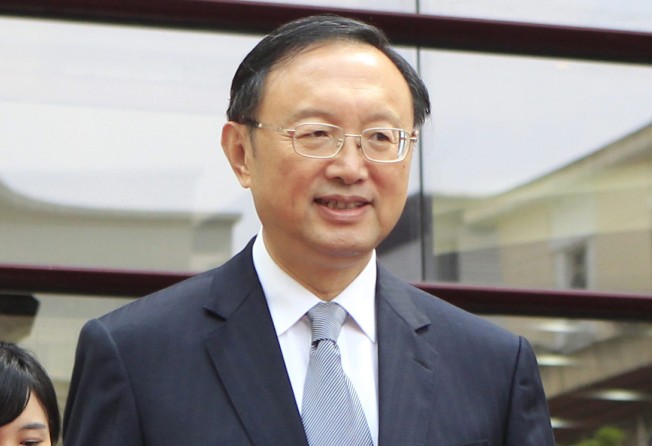China takes Silk Road to challenge US role in Asia
Fears are growing in Washington as Beijing seeks to enhance its leadership in region by investing in infrastructure and boosting trade

"The Silk Road, no longer just a concept in history books, has evolved into a story of modern logistics and Sino-European co-operation," Yang Jiechi, China's top diplomat, told a conference this month.
The new Silk Road economic belt, from China across Central Asia and Russia to Europe, and the 21st-century maritime Silk Road - through the Malacca Strait to India, the Middle East and East Africa - have become the centrepiece of China's economic diplomacy.
The belt and the road, as China's diplomats refer to them, are the focus of the Asia-Pacific Economic Cooperation summit in Beijing this week. They aim to cement China's emerging role at the heart of the 21st-century economy.
President Xi Jinping has pledged US$40 billion to a new Silk Road fund for investing in infrastructure, resources and industrial and financial co-operation across Asia.
Chinese diplomats have also been busy promoting a new Asian Infrastructure Investment Bank, promising to provide half of its US$50 billion start-up capital to help build ports, roads, power projects and other infrastructure across the region.
The Silk Road fund and the Asia Infrastructure Investment Bank pose a direct challenge to the traditional primacy of US-dominated financial and trade institutions in the region, including the International Monetary Fund, the World Bank and Asian Development Bank.
US diplomats have been manoeuvring furiously to limit the impact of China's economic diplomacy. In the past month, Australia and South Korea both declined to join the new infrastructure bank following intense lobbying from officials in Washington.
But there is a deeper, unspoken fear that the new institutions will be used to enhance China's leadership at the expense of the United States and its traditional allies in Asia, including Japan, Korea and Australia. It is part of a mounting economic, political and military competition between the US and China across the region.
The US pivot to Asia is being matched by a similar move on the part of Russia, which has sought to reduce its dependence on the US and Europe by upgrading its economic ties with China. In the past six months, it has signed two major deals to supply natural gas to China, which has become Russia's most important trading partner.
China and Russia have also been busy promoting economic and military ties across Central Asia through the Shanghai Cooperation Organisation.
The IMF, the World Bank and regional development banks are all dominated by the US and its allies in terms of voting rights, capital structure, headquarters location and staffing.
Efforts to reform them to give a greater role to China and the other fast-growing developing economies have largely proved unfruitful.
The multilateral lending institutions are severely undercapitalised and have nowhere near enough resources to meet the infrastructure needs across Asia, Africa and Latin America.
There is still an assumption that economies of developing countries are defined by their relationship with their more developed counterparts. But that world has vanished over the past decade.
More than half the exports from developing economies were sent to other developing economies in 2013, according to the World Trade Organisation. Countries in Asia sent more than 60 per cent of their exports to other nations in Asia, Africa and the Middle East, compared with just over 15 per cent each to North America and Europe.
Before the financial crisis, China's capital was tied up passively and uselessly in US Treasury bonds. Now China wants to use its capital more productively to invest in infrastructure in its major trading partners and at the same time buy more economic and political influence.
As the balance of power within the global economy shifts, it is inevitable that the international economic architecture will have to evolve. Some Western foreign policy specialists have naively assumed that emerging markets would become integrated into existing post-war, Western-dominated structures of power and governance.
Just as access to American markets and capital was once a key component of US diplomacy, China is now employing its financial and trade muscle to win friends and influence.
Reuters